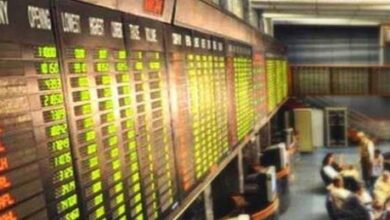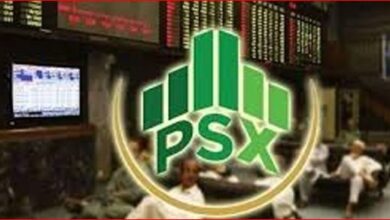IMPACT: Making everyone’s incomes tighter, in every sector

The government has finally accepted the “IMF-mandated” changes to the budget and raised its revenue goal for the next fiscal year to Rs7.47 trillion, which is a net increase of Rs 466 billion since the June 10 budget. Even though it’s not a reformist budget that should have ideally made the tax net bigger, it looks like the tax-to-GDP ratio will go up at least for a year, with almost every part of the economy, except agriculture, paying more in taxes.
The manufacturing sector has been shaken up by the fact that almost a dozen big industries now have to pay more taxes. The first immediate reaction to the surprise tax increase in the form of the “super tax” was a drop of about 2,000 points in the stock market. More taxes have been added to their profits. At the same time, sectors like retailers, jewellers, builders, restaurants, and car dealers, which have been PML-P’s strength, have been put under a fixed tax system.
But this could be a good start if a year later, this sector is taxed in a way that makes sense based on its tax potential. The Finance Minister, Miftah Ismail, said that the government had promised the IMF that the primary deficit of Rs1.6tr this year would not only be cut, but there would also be a surplus of Rs153bn.
People with a lot of money have also had to pay more tax in the form of a “poverty alleviation tax.” The cherry on top was an extra “super tax” on 13 industries that are thought to have made more than Rs900bn in profits this year. This “super tax” applies to cement, steel, sugar, oil and gas, fertilisers, LNG terminals, textiles, banks, cars, cigarettes, drinks, chemicals, and airlines.
Not all of these fields have done well because of government subsidies, protections, and rent-seeking, but some of them have. For far too long, the banking industry has made sure profits on public money by guaranteeing government borrowing. The banking industry owes it to the country to give back some of this money for one year. But many of these sectors are also the main places where people get jobs. It’s not clear yet if these big industries will want or be able to deal with the effects of more taxes, or if they will just pass them on to the people, which could raise the cost of living and building for the middle class.
For example, the prices of cement and steel have doubled in about three years. Even though businesses could pass on the extra costs to customers, the citizens would be in a double bind: they would have to pay high taxes if they built, and they would also have to pay taxes on deemed rental income if they kept empty plots as a way to save money.
This could also affect how people feel about investing. Ghias Khan, the president of the all-powerful Overseas Chamber of Commerce and Industry and Engro Corporation, said that putting a super tax on industries is regressive and will slow down industrialization, stop manufacturing, and not reduce the current account deficit. He said that Pakistan needs a wider tax base, which can be done through documentation, taxing unproductive industries like real estate, and making long-term policy changes.
The bright side is that if the government doesn’t stick to its promise of a one-time super tax, as it has in the past, big businesses may try to cut jobs or pass costs on to the market, which would drive prices up. There’s no doubt that their input costs have gone up over the past few years, but they’ve also gotten help from the government through a series of stimulus packages over the past three years.
Even though Finance Minister Ismail and Prime Minister Shehbaz Sharif said the rich were taxed, the poor and middle class were also taxed because of the IMF’s stubbornness. The last red line that the finance minister gave up last week to get a positive statement from the IMF staff and pass the final budget was removing the tax exemption limit for people who make more than Rs 1.2 million a year.
The overall effect of the new budget is to make it harder for almost everyone and every sector to make money. It makes it harder for a lot of people with middle-income jobs to buy things, especially when you add in the petroleum development levy, the recent rise in oil prices, and the series of planned and ongoing increases in electricity tariffs and gas prices.
But then, the most important goal this year for the “IMF budget” is to put numbers on the board. This will slow down the economy, make it harder for most people to buy things, and make some people’s lives harder. Most people will have a hard time financially in the coming year, but everyone seems to have to carry their fair share of the load if things are going to get better.





